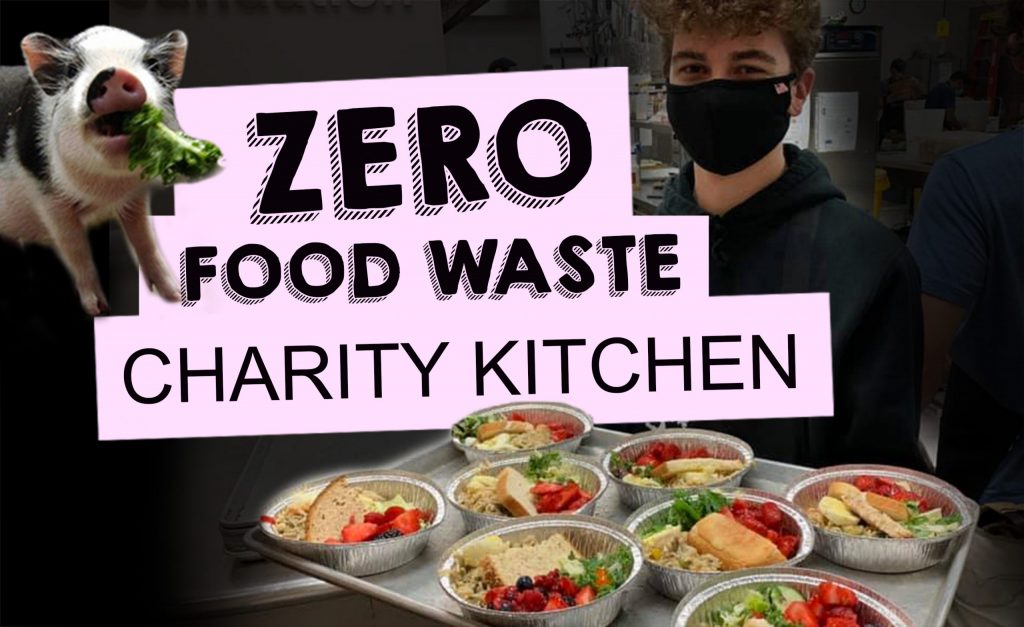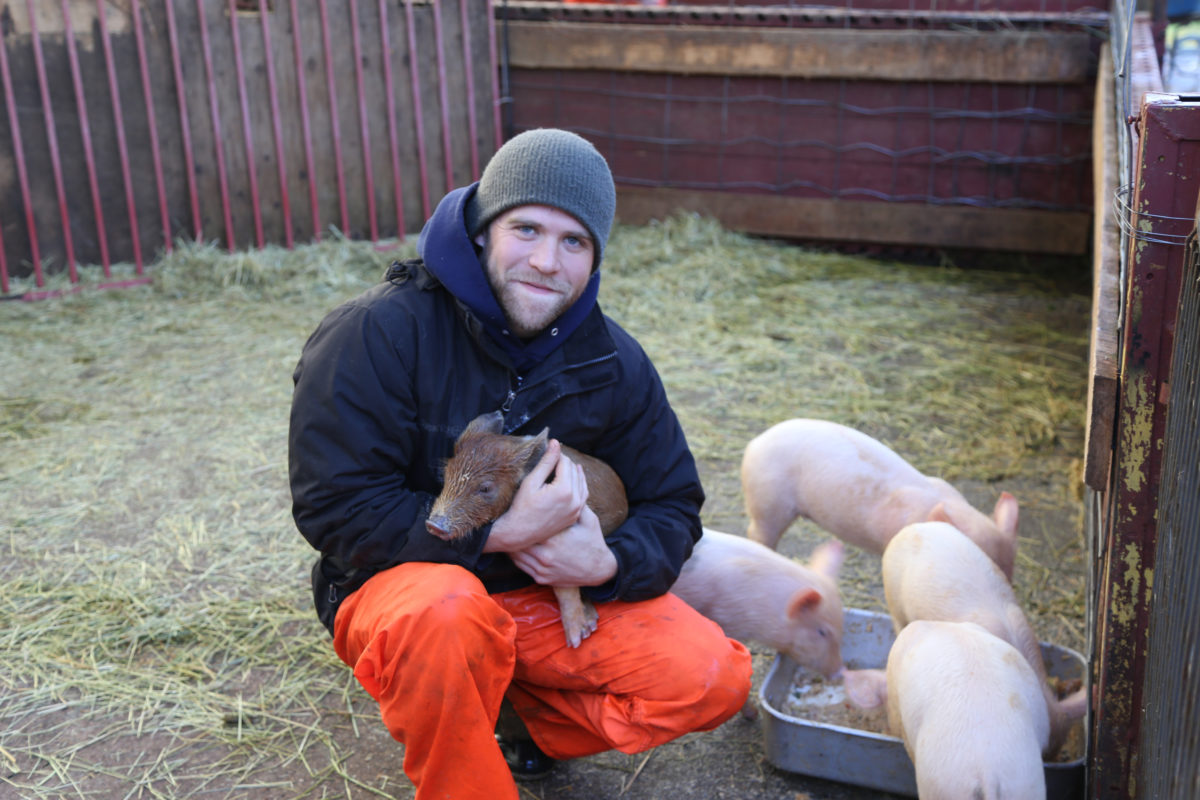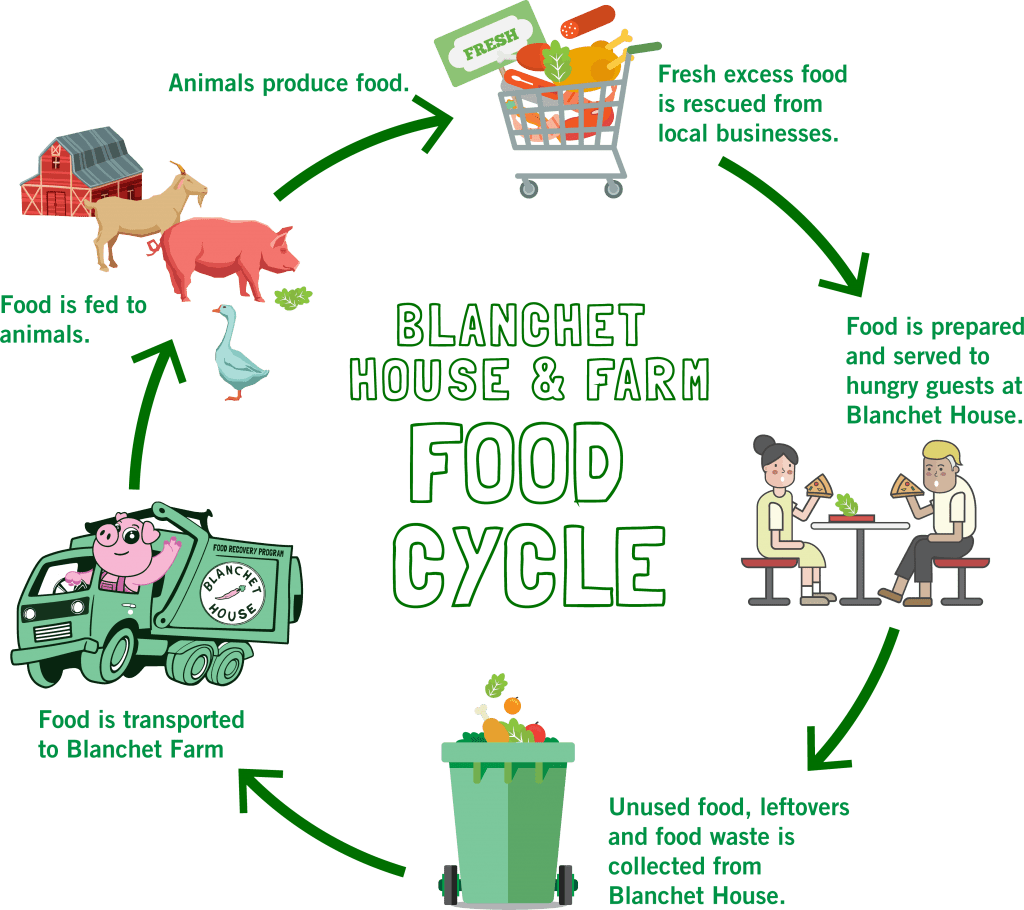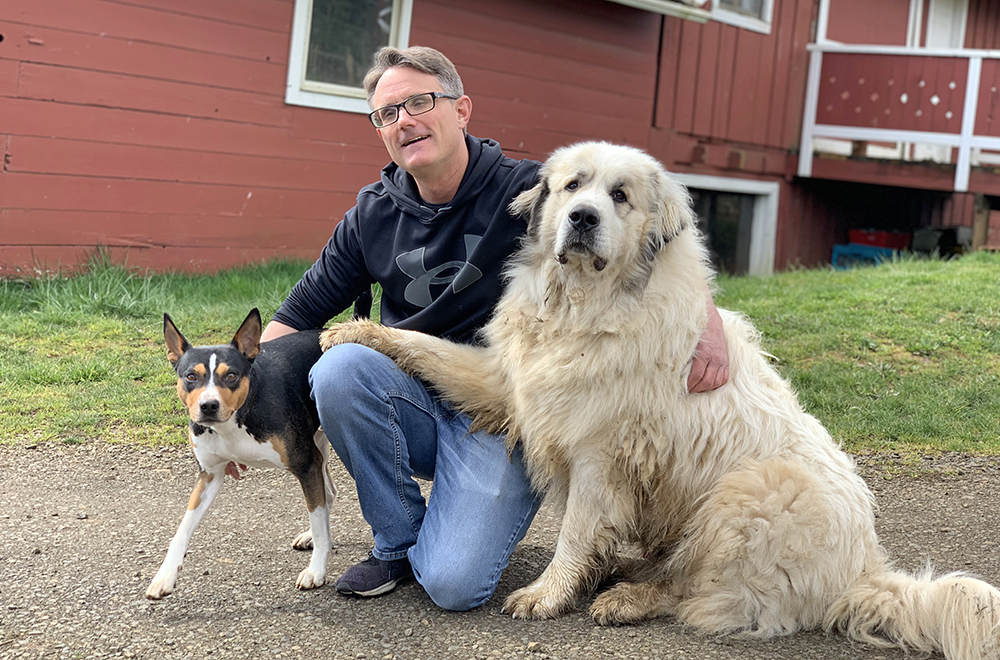The Power of Pigs to Reduce Food Waste
Reducing Hunger, Reducing Waste
Blanchet House’s meal program increases equitable access to nutritious food while maintaining a low food waste kitchen thanks to a few very hungry pigs at Blanchet Farm. The pigs help to reduce food waste. We’re able to do this by collecting surplus good food from local grocery stores, restaurants, and wholesalers. We keep valuable food from going to waste and get it to people who need it. The rescued ingredients are prepared into meals and shared with peer organizations and mutual aid groups. Sharing food with peer groups increases access to marginalized individuals who have difficulty connecting to healthy meals.














 Behind the Scenes
Behind the Scenes Pigs Change Lives
Pigs Change Lives Pigs Reduce Food Waste: The Rewards
Pigs Reduce Food Waste: The Rewards
